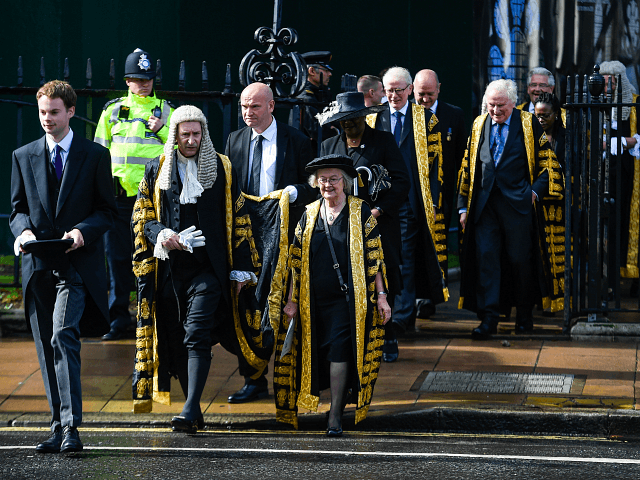Boris Johnson make seek to essentially scrap the Supreme Court of the United Kingdom created by Tony Blair in the 2000s, following Brexit controversies last year in which it came to be viewed as politicised.
Prior to Blair’s creation of the Supreme Court, the Appellate Committee of The House of Lords had been, in most respects, the highest “court” in the land, evolving over more than half a millennium from the Curia Regis of the sovereign’s royal court.
Blair’s “botched” reforms broke those ancient links, ushering in something more closely resembling the Supreme Court of the United States — but with the key difference that the British judges are largely self-selecting, with no public hearings or vote on their appointment by elected politicians.
It is now being reported that Boris Johnson’s government is seeking to overhaul the court, believed by some to be behaving too much like a U.S. or European-style constitutional court — incompatible with the British doctrine of parliamentary sovereignty — by renaming it and reducing its permanent membership, according to the Telegraph.
Brexit: Government Tells Supreme Court Judges They Have no Right to Rule of Political Matters https://t.co/rO0fMbAhze
— Breitbart London (@BreitbartLondon) September 17, 2019
Judicial review used to be extremely rare in Britain, but has become increasingly common in recent years, with judges often using European human rights law and domestic statutes helping to implement it to intervene in issues where they would once have had little or no jurisdiction.
The Supreme Court’s most controversial decisions have been Brexit-related, however, with its decision to overturn the Queen’s prorogation — temporary suspension — of Parliament when anti-Brexit MPs were attempting to sabotage the Government’s efforts to deliver an EU exit last year being deemed particularly egregious, given prorogation had been a prerogative power over which the courts had no authority for hundreds of years.
Jacob Rees-Mogg, the Leader of the House of Commons, went so far as to denounce the ruling as a “constitutional coup”, with the justices essentially arrogating new powers to themselves out of thin air in order to meet a political objective.
REPORT: Rees-Mogg Called Supreme Court Ruling ‘Constitutional Coup’ https://t.co/LBCYAjwTnw
— Breitbart London (@BreitbartLondon) September 25, 2019
Suggestions that the Supreme Court has become at least somewhat activist in its approach were previously lent a degree of credibility by no less a personage than Lord Neuberger, a former president of the court who still sits on its Supplementary Panel, when he explained how its justices have informally extended their powers to approach those of the more overtly politicised Supreme Court of the United States.
“The United States Supreme Court, famously, can override statutes even if they’ve been passed by the House of Representatives, the Senate, and the President, all democratically elected, but if they’re unconstitutional courts can strike them down. We can’t do that,” he said.
“We get round that, the judges get round that, by what Baldrick might call a cunning and subtle plan of being able to ‘interpret’ statutes, and sometimes we interpret them quite, um, quite imaginatively,” he grinned.

COMMENTS
Please let us know if you're having issues with commenting.